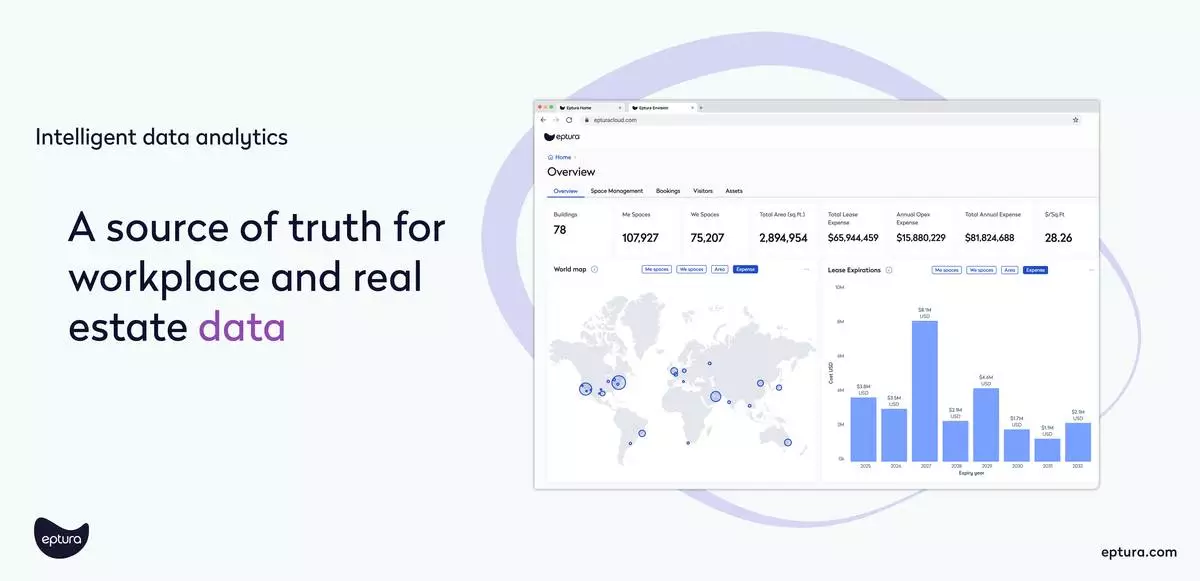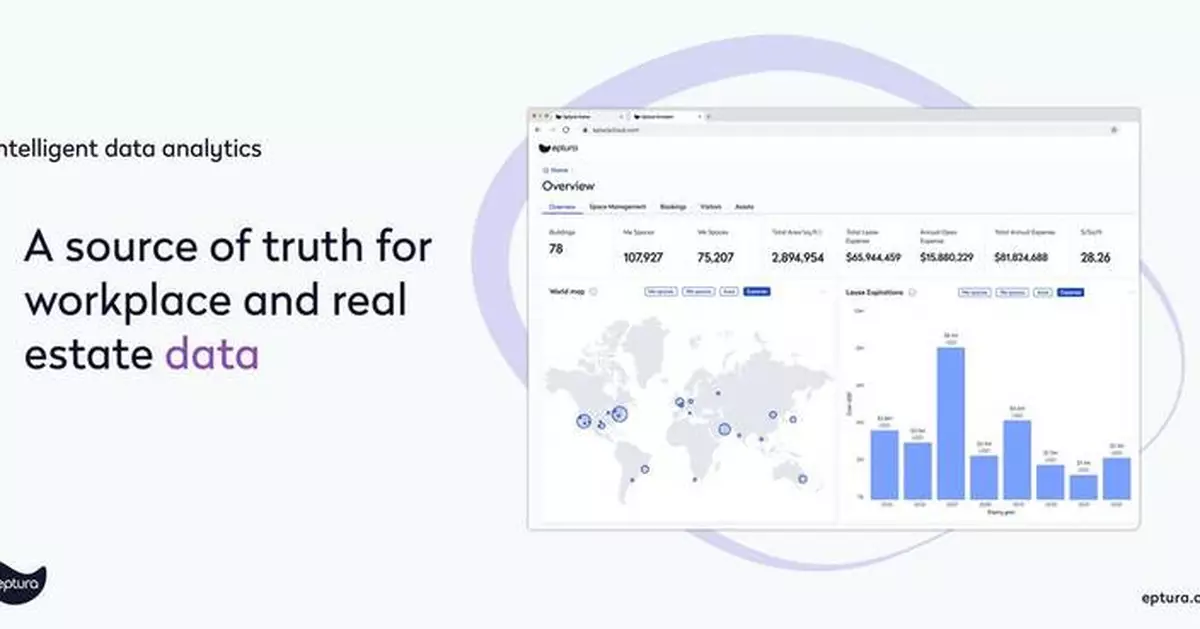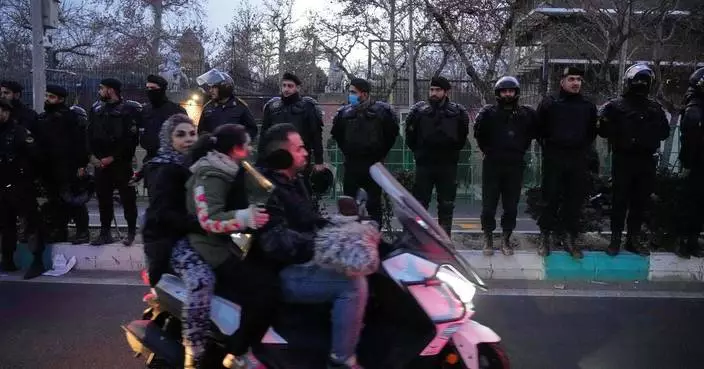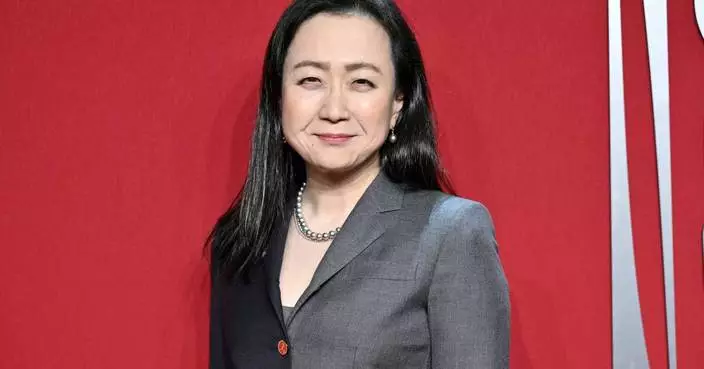ATLANTA--(BUSINESS WIRE)--Apr 29, 2025--
Eptura, the global worktech leader, today announced powerful product updates to help enterprises tackle the operational challenges of returning to offices and managing assets — including optimizing space utilization, improving visitor security, and delivering real-time insights. These reflect Eptura’s commitment to solving real enterprise challenges with purposeful innovation spanning field worker productivity, visitor experience, hybrid work support, and AI-powered workplace operations.
This press release features multimedia. View the full release here: https://www.businesswire.com/news/home/20250429061269/en/
“Enterprises are under pressure to manage rising office occupancy, deliver frictionless experiences, and make smarter decisions about their spaces and assets,” said Eptura Chief Executive Officer Brandon Holden. “Our latest updates address these needs directly — with mobile tools for field teams, AI-enabled employee and visitor management solutions, and real-time workplace analytics that help organizations operate more efficiently and securely.”
Featured product innovations
Empowering field teams with intelligent, mobile tools
Enhancing workplace experience and insight
Driving integration and operational visibility
Eptura developed these capabilities and broader enhancements across its full suite of products to deliver more cohesive user experiences, streamline integrations, expand localization and language support, and boost analytics capabilities. The result is a more connected, informed, and intelligent workplace ecosystem built to enable enterprises to address key operational challenges, including:
To see how you can use intelligent worktech to get more value out of your workplace, register for the product announcement event or watch on demand.
About Eptura™
Eptura is a global worktech company that digitally connects people, places, and assets in one intelligent platform, enabling organizations to drive more value. With 25 million users across 115 countries, we are trusted by the world’s leading companies, including 45% of Fortune 500 brands, to realize a better future at work. For more information, visit eptura.com.


Eptura’s Envision enterprise overview dashboard unifies workplace and real estate analytics, giving users a single, actionable view of people, places, and assets.
PHILADELPHIA (AP) — Donovan Mitchell had 35 points and nine assists, Darius Garland scored 20 points before leaving with an injured foot and the Cleveland Cavaliers beat the Philadelphia 76ers 133-107 on Wednesday night.
Garland was ruled out for the game late in the third quarter when he hurt his right foot diving for a loose ball. Garland already had surgery in June on the injured left big toe that hampered him during Cleveland’s exit from the playoffs.
The All-Star guard averaged 17.9 points after a slow start this season as he recovered from surgery. Garland continued his recent hot streak and shot 8 for 13 against the 76ers.
Garland averaged 20.6 points and 6.7 assists during the regular season to help the Cavs finish atop the Eastern Conference.
Joel Embiid scored 20 points and hit a 3-pointer that helped him reach 13,000 career points, the seventh player in team history to hit that mark.
Paul George had 17 points for the Sixers in the opener of a two-game series.
Sixers fans booed the team off the court in the third quarter headed into a timeout and trailing 75-53.
Tyrese Maxey and Quintin Grimes hit a pair of 3s during a 10-0 run and Embiid — who just earlier landed his 7-foot-2 frame on two rows of unsuspecting fans when he dove for a loose ball — buried a 3 that made it 79-66.
The good times were short-lived, and fans headed for the exits as the Cavs stretched the lead to 22 midway through the fourth.
Sixers forward Dom Barlow needed help up from the court and into the locker room after his legs gave out on him and he landed hard on his back and head on a driving layup attempt. He suffered a back contusion.
De'Andre Hunter hit early 3s that stretched Cleveland's lead to 30-14 and 60-47 headed into halftime. Hunter and Evan Mobley both scored 17 points. Mobley grabbed 13 rebounds.
The teams play again Friday.
AP NBA: https://apnews.com/hub/nba

Cleveland Cavaliers' Darius Garland, left, passes against Philadelphia 76ers' Tyrese Maxey during the first half of an NBA basketball game Wednesday, Jan. 14, 2026, in Philadelphia. (AP Photo/Matt Slocum)

Philadelphia 76ers' Joel Embiid, center, goes up for a shot between Cleveland Cavaliers' Jarrett Allen, left, and Evan Mobley during the first half of an NBA basketball game Wednesday, Jan. 14, 2026, in Philadelphia. (AP Photo/Matt Slocum)

Philadelphia 76ers' Joel Embiid (21) goes up for a shot during the first half of an NBA basketball game against the Cleveland Cavaliers Wednesday, Jan. 14, 2026, in Philadelphia. (AP Photo/Matt Slocum)

Philadelphia 76ers' Tyrese Maxey (0) goes up for a shot against Cleveland Cavaliers' Sam Merrill (5) during the first half of an NBA basketball game Wednesday, Jan. 14, 2026, in Philadelphia. (AP Photo/Matt Slocum)

Cleveland Cavaliers' Donovan Mitchell, right, battles for the ball against Philadelphia 76ers' Vj Edgecombe during the first half of an NBA basketball game Wednesday, Jan. 14, 2026, in Philadelphia. (AP Photo/Matt Slocum)
















